
We are all fascinated by owls. Perhaps it is their huge forward facing eyes and 'cute and cuddly' appearance, the things that in fact make them fierce hunters, or perhaps it is down to the multiple stories portraying owls as pets (I’m looking at you J.K Rowling). Unfortunately for these magnificent animals, this fascination has lead to an increase in people purchasing owls as pets. In many countries, including the UK, it is disturbingly easy to obtain an owl, there is no necessary licensing, paperwork, or knowledge check that needs to be achieved before an owl can be purchased.
However, owls are not animals that should just be bought and taken home with no knowledge or preparation. These birds are built to kill, and are not in anyway domesticated, it is similar to trying to keep a wolf as a pet rather than a dog. They have no capability for love or affection towards people and in that sense will make a highly unrewarding pet, they do not enjoy being touched or stroked like a dog does and they do not seek out contact with humans. Due to their fierce nature they may also cause harm to inexperienced handlers if treated incorrectly, as these are wild animals, every aspect of them finely tuned to kill and capture their prey.
Arwen's (European Eagle Owl) feet, showing how formidable owls truly are, these feet could crush a motorbike helmet if she wished.
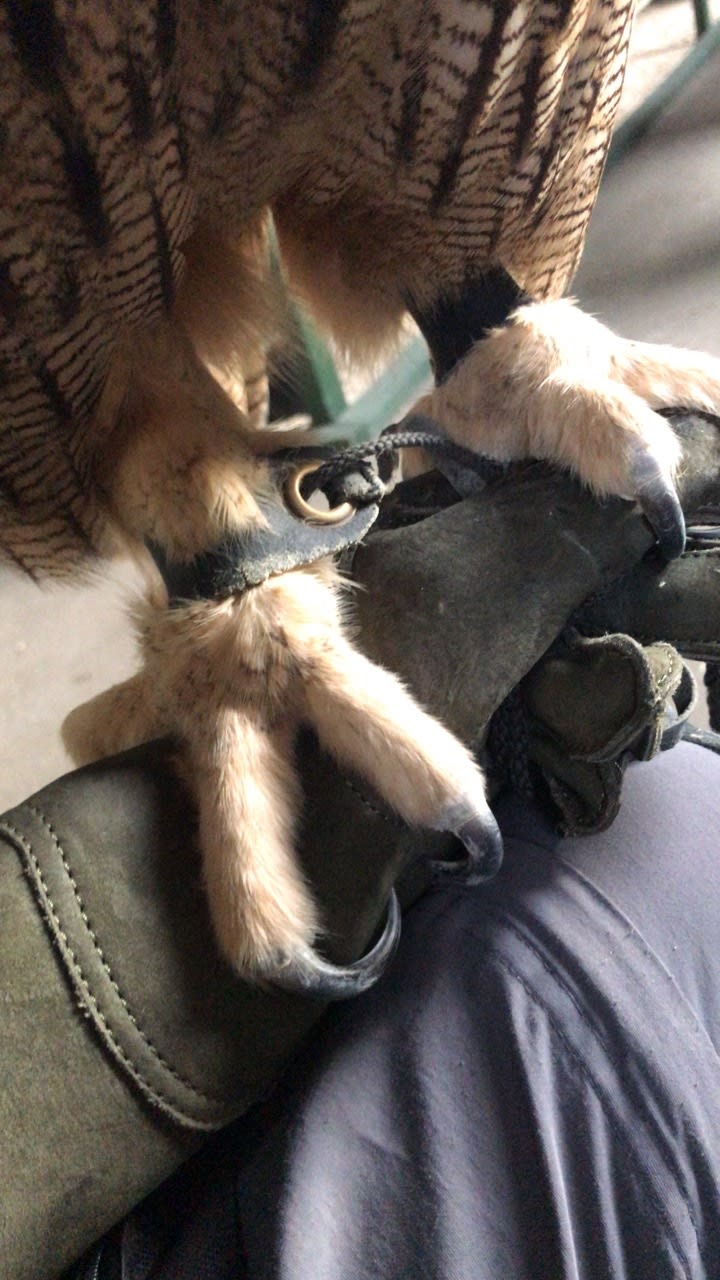
Not only will they be unrewarding and potentially harmful pets, keeping them in the incorrect conditions will also cause harm to the owl. They have extremely specific and demanding requirements, including a knowledgeably designed aviary outdoors, professional equipment such as falconry gloves, jesses and anklets. All birds of prey also require daily attention, which most people cannot realistically provide, they demand a specific raw meat diet (and I don't mean raw steaks from the supermarket) and very expert weight control which is hard to master. Owls cannot live inside the house on a perch, they must be kept in an outdoors aviary, they must be flown (and not by someone who doesn't know how to recover them if they are lost), and they also mean that the owner is highly unlikely to be able to take holidays as they cannot be left with neighbours and the owner cannot rely on anyone else to feed and care for their owl correctly.
Kofi (white faced scops owl) being weighed to ensure he remains at a constant weight.
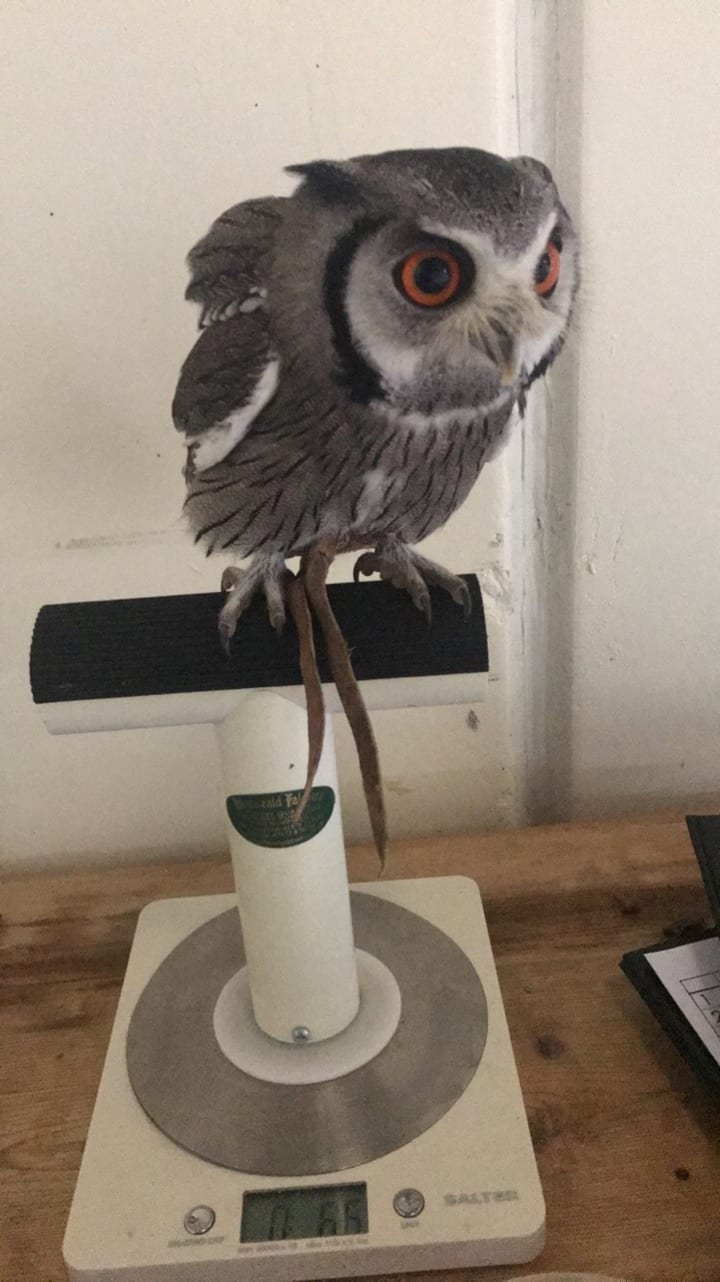
It is pure fact that owls are not built to be pets. They are not domestic animals and I urge anyone who has a desire to get an owl as a pet to consider another domestic bird such as a parakeet or budgie (although to be aware that these birds will also have needs that must be researched prior to purchase as with any other pet).
If after this you still have a desire to be around owls do not despair! There are ways you can work with owls, and even work towards gaining the knowledge needed in caring for an owl of your own (although I again state this owl will not be a rewarding pet in the way that typical domestic pet animals are). I have been interested by owls and other birds of prey since an extremely young age, and when I was 13 I began to volunteer at a falconry centre local to my home. I proceeded to volunteer there for the next three summers, during which I learnt a lot about birds of prey and their high strung temperaments and specific needs. For the next two years I worked on my A levels, only occasionally able to help with the birds at the falconry centre, eventually stopping going altogether (though not from lack of wanting to). Now that I am at university I am volunteering as often as possible at a falconry centre just outside of my city, where we have 11 owls, three Harris's hawks and one red-tailed hawk. I also work back at home with a Harris's hawk that I share responsibility of with my neighbour.
It has taken all these years for me to finally feel confident that I'd be able to provide proper care on my own for a bird of prey. I have finally learnt all the expert techniques necessary for their care such as weight control, coping, imping, training etc. It is easy and highly rewarding to locate a falconry centre and offer your voluntary services, it's a great way to learn about these amazing creatures, spend time with them, and yet still not have to have the full responsibility of having your own.
In many countries, such as the US, there are harsh regulations on who can own a bird of prey and it ensures that people go through the extremely necessary education first, however there, it is still possible to volunteer at a raptor rehab centre or falconry centre and I would recommend it to any would be US falconry apprentices as it is a great way to gain some practical experience and may also help find a sponsor.
I hope this has helped anyone who might be wondering how they could work with owls, or anyone curious as to why they shouldn't get their own "Hedwig" (on that note OWLS CAN'T BE KEPT IN CAGES). Working with owls is fun and rewarding as long as you know that what you're getting out of it will not be affection or love from the animal, and you know what you're doing with the animal.
Boadicea, My Female Harris's Hawk
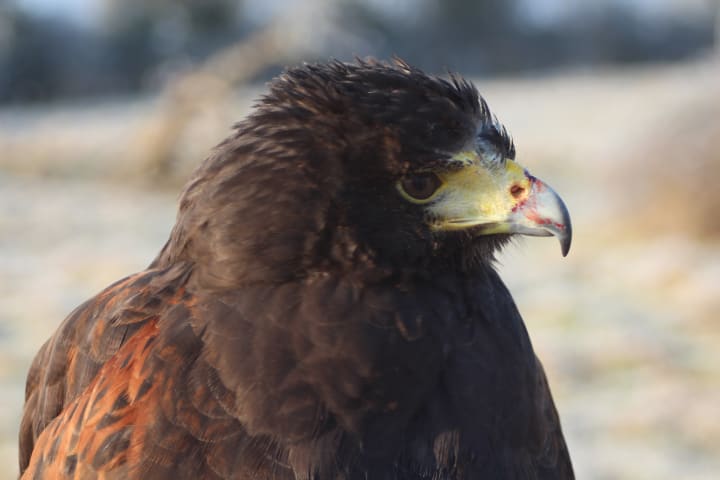
About the Creator
Artemis
I'm a 23 year old author - my interests include wildlife/environmental affairs, video games, books, outdoor pursuits, and more. I will be using this platform to hopefully share these passions with others.

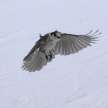

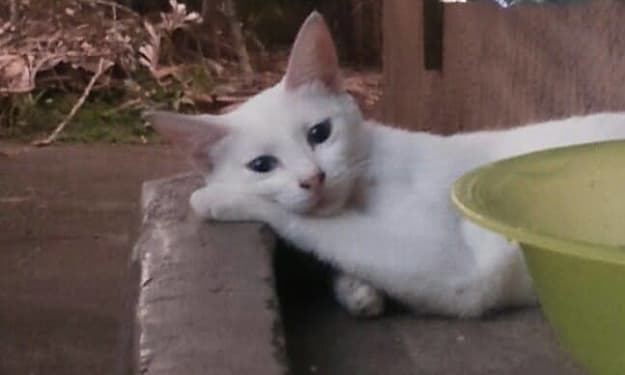


Comments
There are no comments for this story
Be the first to respond and start the conversation.